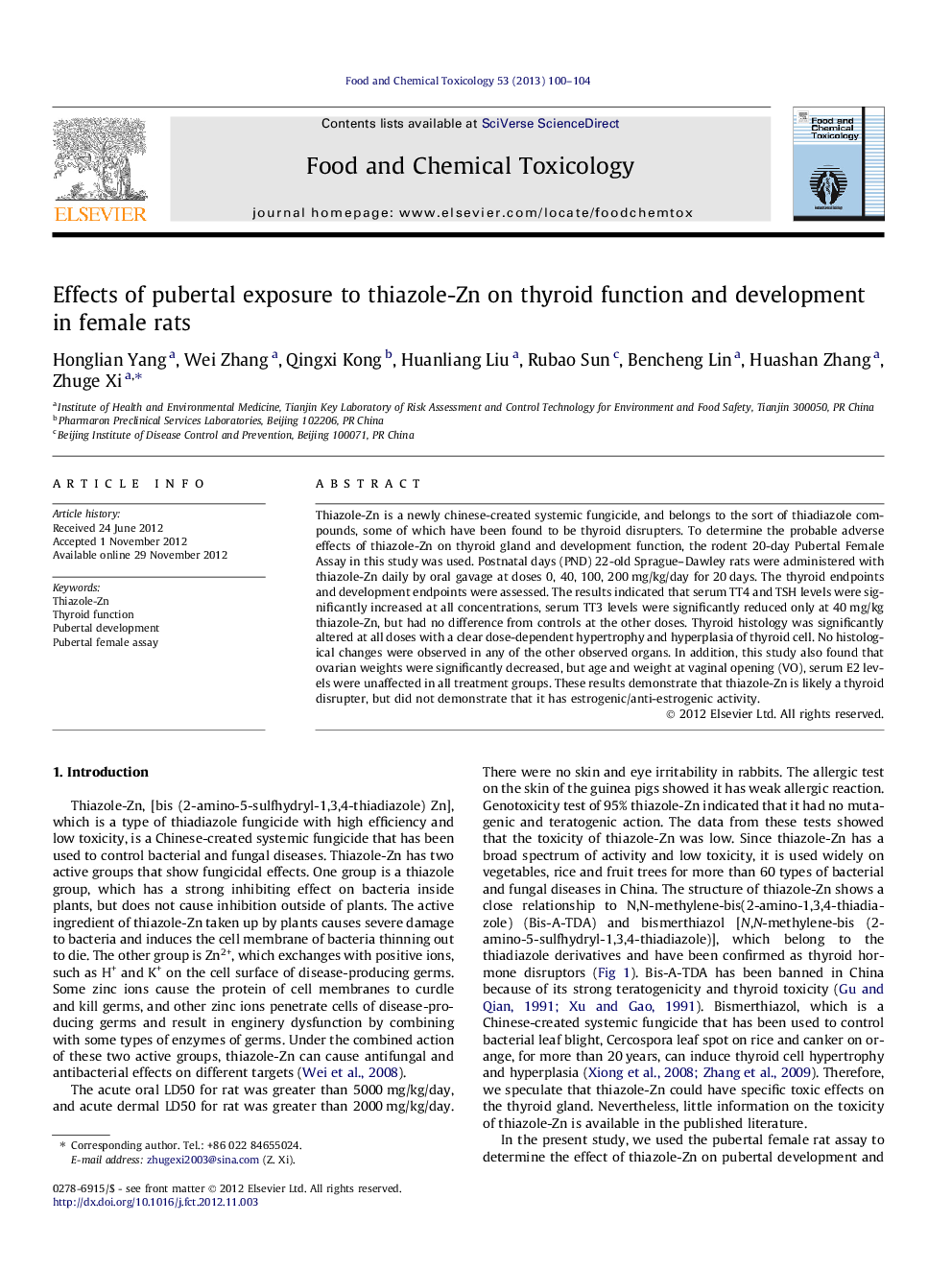| Article ID | Journal | Published Year | Pages | File Type |
|---|---|---|---|---|
| 5851319 | Food and Chemical Toxicology | 2013 | 5 Pages |
Thiazole-Zn is a newly chinese-created systemic fungicide, and belongs to the sort of thiadiazole compounds, some of which have been found to be thyroid disrupters. To determine the probable adverse effects of thiazole-Zn on thyroid gland and development function, the rodent 20-day Pubertal Female Assay in this study was used. Postnatal days (PND) 22-old Sprague-Dawley rats were administered with thiazole-Zn daily by oral gavage at doses 0, 40, 100, 200Â mg/kg/day for 20Â days. The thyroid endpoints and development endpoints were assessed. The results indicated that serum TT4 and TSH levels were significantly increased at all concentrations, serum TT3 levels were significantly reduced only at 40Â mg/kg thiazole-Zn, but had no difference from controls at the other doses. Thyroid histology was significantly altered at all doses with a clear dose-dependent hypertrophy and hyperplasia of thyroid cell. No histological changes were observed in any of the other observed organs. In addition, this study also found that ovarian weights were significantly decreased, but age and weight at vaginal opening (VO), serum E2 levels were unaffected in all treatment groups. These results demonstrate that thiazole-Zn is likely a thyroid disrupter, but did not demonstrate that it has estrogenic/anti-estrogenic activity.
⺠Thiazole-Zn increased thyroid weight in the rats at 40 mg/kg and higher. ⺠Thiazole-Zn induced thyroid gland hypertrophy in the rats at 40 mg/kg and higher. ⺠Thiazole-Zn caused a significant increase in serum TSH and TT4 levels in the rats. ⺠Thiazole-Zn is likely a new thyroid disrupter.
